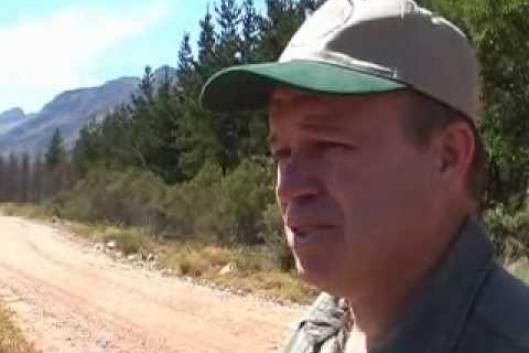Many years have passed since I had the great honour of being elected as the WRM International Coordinator. There are no words that could express my gratitude to those who gave me this opportunity. It has opened up horizons that I was barely aware existed, and allowed me to be, more than a coordinator of anything, a learner of everything.
Issue 161 – December 2010
OUR VIEWPOINT
HUMAN RIGHTS...AND WRONGS
-
30 December 2010The United Nations has designated 10 December as Human Rights Day. The date was chosen to commemorate the 10 December 1948 adoption and proclamation of The Universal Declaration of Human Rights, which states that recognition of the inherent dignity and of the equal and inalienable rights of all human beings is “the foundation of freedom, justice and peace in the world.”
-
30 December 2010On the occasion of Human Rights Day, we think it would be opportune to share a report conducted this year in Brazil: a research study that analyses the impacts of commercial mega-projects on human rights, focusing in this case on large-scale monoculture tree plantations in the northern region of the state of Espirito Santo. This report represents an important contribution, because it offers an overview that expands and enriches the struggle for human rights, while promoting the more effective incorporation of the issue of human rights in the struggles waged by the communities affected.
COMMUNITIES AND FORESTS
-
30 December 2010The Pacific watershed of Guatemala comprises 17 river basins. Most of the rivers in this region have a relatively short length of around 100 kilometres, from their source in the upper reaches of mountains and volcanoes to their mouths on the Pacific coast. One of these rivers is the Coyolate, which begins in the mountains of the department (state) of Chimaltenango and flows through numerous municipalities and communities. In the middle portion of the Coyolate river basin there are large areas of land used for monoculture plantations and livestock raising.
-
30 December 2010West Africa used to be the centre of the palm oil industry. The export of palm kernels began in 1832 and by 1911 “British” West Africa alone exported 157,000 tonnes of which about 75 percent came from Nigeria. In the 1870s, British administrators took the plant to Malaysia and in 1934 that country surpassed Nigeria as the largest exporter of the product. By 1966, Malaysia and Indonesia had surpassed Africa’s total palm oil production.
-
30 December 2010As the neo-extractivist and development policies of the region’s governments continue to move forward, they come hand in hand with the destruction of the natural environment and the genocidal ethnocide of the indigenous peoples who inhabit it. The crossroads we are facing is more critical than ever: if the capitalist invasion is not stopped, the indigenous peoples and the rainforests will disappear.
-
30 December 2010In the Philippines, mining, along with logging, has been among the forces behind the country’s loss of forest cover: from 17 million hectares in 1934 to just three million in 2003 or an 82 per cent decline. While about sixty per cent of the country’s land area was covered with forest seventy years ago, now it is less than ten per cent. (17) And with over half of ongoing and planned mining operations located in areas that are ecologically highly vulnerable and with over a third of approved mining and exploration leases located in intact forests (18) -- much of the little that remains could be lost to extractive industries such as mining.
COMMUNITIES AND TREE PLANTATIONS
-
30 December 2010One of the promises made by plantation companies to gain support – from the government and from local communities – is that they will create employment. What they fail to specify beforehand is the type of employment they will create and under what kind of working conditions, in terms of both salaries and workers’ health and safety.
-
30 December 2010At a time when water resources are becoming scarce and ever more threatened by global warming and climate change, a research carried out in South Africa becomes quite timely. After 70 years of monitoring in the Jonkershoek reserve, in the Western Cape Province, the study reveals the impact of monoculture tree plantations on underground water and streamflow. This is very important, given that plantations use significant amounts of water and have expanded greately in South Africa, a country with scarse water resources.
-
30 December 2010The FSC (Forest Stewardship Council)website has announced that the company Chikweti Forests of Niassa, which operates in the province of Niassa in northern Mozambique, is seeking the FSC “green label” for a 33,916-hectare monoculture tree plantation. According to the website, the pre-evaluation was carried out in November 2010, and the main evaluation is anticipated for February/March 2011. The FSC certification body in this case is Soil Association Woodmark, based in the United Kingdom.

